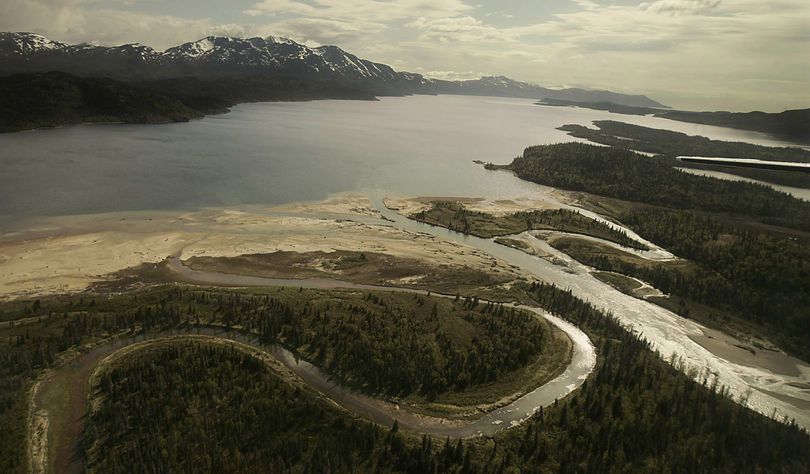Sportsman urge EPA to spare Bristol Bay from Pebble Mine

FISHING – A coalition of more than 360 fishing, hunting and sporting organizations from nearly every state in the nation U.S. have signed a letter urging the U.S. Environmental Protection Agency to protect Bristol Bay, Alaska, from potential watershed damage by the proposed Pebble Mine.
"Bristol Bay is the single most important wild salmon fishery in the world,” said Chris Wood, President and CEO of Trout Unlimited. “It generates roughly $450 million a year in economic impact and sustains about 12,000 jobs.”
On Feb. 7, the agency announced plans to assess the southwestern Alaska watershed, famous for its salmon and trout fishing, to study how open pit mining and large-scale development projects would affect water quality and fisheries.
The sportsmens groups will be in Washington, D.C., this week lobbying lawmakers and urging EPA to go a step further to guarantee a future for the fisheries.
Read on for details.
Bristol Bay is a 40,000 square mile region with nine major rivers, and is home to the world's largest sockeye salmon run. Pebble Mine would create an open-pit mine up to 2 miles wide and 1,700 feet deep.
Conservation groups say the mine could dump up to 10 billion tons of perpetually toxic waste in the heart of the Bristol Bay watershed.
"Protecting Bristol Bay is currently the number one conservation issue for the United States fly fishing industry," said Jim Klug, Chairman of the American Fly Fishing Trade Association.
Sport fishing in Bristol Bay generates $60 million annually, and supports more than 800 full- and part-time jobs. Despite the remote nature of the region and the costs to travel there, up to 65,000 visitors journey to Bristol Bay for recreational opportunities to fish, hunt, and view wildlife every year.
"This unique, wild country stands today as God intended, and a mine in the heart of Bristol Bay would cause irrevocable harm," said Dr. Richard Allen, Past President of the Dallas Safari Club. "The real gold mine is already in Bristol Bay - it's the salmon, trout, wildlife and the jobs and American families that those fish support."
Whit Fosburgh, President and CEO of the Theodore Roosevelt Conservation Partnership, said: "Over the last century, we have watched our great salmon fisheries sacrificed for development, including the Sacramento, the Klamath, and the Columbia rivers and many in between. Bristol Bay is our last great stronghold for wild salmon - salmon that will support regional economies and provide protein for the world forever if we protect them."
The organizations urge EPA to use its authority under the Clean Water Act to invoke Section 404(c), which would give Bristol Bay the protection it needs from mining and other large-scale developments.
